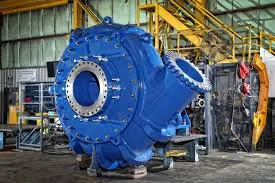Khmer
- Afrikaans
- Albanian
- Amharic
- Arabic
- Armenian
- Azerbaijani
- Basque
- Belarusian
- Bengali
- Bosnian
- Bulgarian
- Catalan
- Cebuano
- Corsican
- Croatian
- Czech
- Danish
- Dutch
- English
- Esperanto
- Estonian
- Finnish
- French
- Frisian
- Galician
- Georgian
- German
- Greek
- Gujarati
- Haitian Creole
- hausa
- hawaiian
- Hebrew
- Hindi
- Miao
- Hungarian
- Icelandic
- igbo
- Indonesian
- irish
- Italian
- Japanese
- Javanese
- Kannada
- kazakh
- Khmer
- Rwandese
- Korean
- Kurdish
- Kyrgyz
- Lao
- Latin
- Latvian
- Lithuanian
- Luxembourgish
- Macedonian
- Malgashi
- Malay
- Malayalam
- Maltese
- Maori
- Marathi
- Mongolian
- Myanmar
- Nepali
- Norwegian
- Norwegian
- Occitan
- Pashto
- Persian
- Polish
- Portuguese
- Punjabi
- Romanian
- Russian
- Samoan
- Scottish Gaelic
- Serbian
- Sesotho
- Shona
- Sindhi
- Sinhala
- Slovak
- Slovenian
- Somali
- Spanish
- Sundanese
- Swahili
- Swedish
- Tagalog
- Tajik
- Tamil
- Tatar
- Telugu
- Thai
- Turkish
- Turkmen
- Ukrainian
- Urdu
- Uighur
- Uzbek
- Vietnamese
- Welsh
- Bantu
- Yiddish
- Yoruba
- Zulu
Telephone: +86 13120555503
Email: frank@cypump.com
ធ្នូ . 19, 2024 22:48 Back to list
sewer pumps
Understanding Sewer Pumps An Essential Component of Wastewater Management
Sewer pumps are an integral part of modern sanitation systems, playing a crucial role in transporting wastewater from homes and industries to treatment facilities. Unlike gravity systems, which rely on slope to move sewage, sewer pumps use mechanical forces to lift wastewater and ensure its efficient disposal. This article explores the various types, functions, and importance of sewer pumps in our daily lives.
What Are Sewer Pumps?
Sewer pumps are specially designed devices that help in moving wastewater from lower elevations to higher ones. They are commonly used in areas where gravity alone is insufficient to carry sewage to treatment plants. There are several types of sewer pumps, each suited to specific conditions and requirements. The most common types include
1. Wastewater Pumps These pumps handle the solid and liquid contents of wastewater. They are designed to manage everything from light waste to more challenging materials like food scraps and toiletries.
2. Effluent Pumps Typically used for systems that treat wastewater before it's discharged, effluent pumps manage less solid waste. They are commonly found in systems where the wastewater is partially treated and then released into a drain field.
3. grinder Pumps Designed for applications where the sewage is predominantly made up of foul effluent, grinder pumps use blades to chop solid waste into smaller particles. This minimizes the risk of clogging and allows for smoother pump operation.
How Do Sewer Pumps Work?
Sewer pumps operate on a straightforward principle. They consist of a motor to provide mechanical energy, an impeller to help move the wastewater, and a discharge pipe to transport the waste away from the pump. When the wastewater enters the pump, the motor spins the impeller, creating a centrifugal force that propels the sewage through the discharge pipe.
The pumps are usually installed in a wet well or a pit designed to hold a specific amount of wastewater. As the level of wastewater rises in the pit, it triggers a float switch or a level sensor, activating the pump. Once the water level drops, the pump shuts off automatically, ensuring energy efficiency and preventing dry running.
sewer pumps

The Importance of Sewer Pumps
Sewer pumps are critical for public health and environmental protection
. Here's why they are so essential1. Public Health Effective sewage management directly impacts public health. Without sewer pumps, untreated sewage could accumulate, leading to hazardous conditions, contamination of drinking water supplies, and the spread of diseases.
2. Environmental Protection Properly functioning sewer pumps prevent overflows and backups, which can pollute local waterways and ecosystems. Timely transportation of wastewater to treatment facilities enables effective treatment, thereby minimizing environmental harm.
3. Urban Development In urban areas, sewer pumps are crucial for accommodating dense populations. High-rise buildings and complexes often require sewage systems that operate against gravity, making pumps indispensable for their sanitation.
4. Reliability and Efficiency Modern sewer pumps are designed for durability and efficiency. Advanced technology allows for smart monitoring and maintenance, ensuring that systems remain operational and reducing the risk of costly repairs or overhauls.
Maintenance of Sewer Pumps
Like any mechanical system, sewer pumps require regular maintenance to function optimally. Routine checks should include inspecting the motor and impeller, cleaning the discharge lines, checking for leaks, and ensuring that float switches are operational. Neglecting these maintenance tasks can lead to pump failure, resulting in unwanted sewer backups and costly repairs.
Conclusion
Sewer pumps might not be the most glamorous aspect of urban infrastructure, but they play a vital role in maintaining hygiene and environmental integrity. Understanding their types, functionality, and importance can help us appreciate the complexities of wastewater management systems. As urban populations continue to grow, the significance of sewer pumps and the necessity for modern and efficient sewage systems will only increase, making them more important than ever in our daily lives.
-
ISG Series Vertical Pipeline Pump - Chi Yuan Pumps Co., LTD.|High Efficiency, Energy Saving, Low Noise
NewsJul.30,2025
-
ISG Series Vertical Pipeline Pump- Chi Yuan Pumps|High Efficiency&Low Noise
NewsJul.30,2025
-
ISG Series Vertical Pipeline Pump-Chi Yuan Pumps Co., LTD.|High Efficiency&Energy Conservation
NewsJul.30,2025
-
ISG Series Vertical Pipeline Pump - Chi Yuan Pumps Co., LTD.|Advanced Hydraulic Design&Energy-Efficient Solutions
NewsJul.30,2025
-
ISG Series Vertical Pipeline Pump - Chi Yuan Pumps Co., LTD.
NewsJul.30,2025
-
ISG Series Vertical Pipeline Pump - Chi Yuan Pumps Co., LTD.|energy-efficient fluid handling&industrial durability
NewsJul.30,2025










